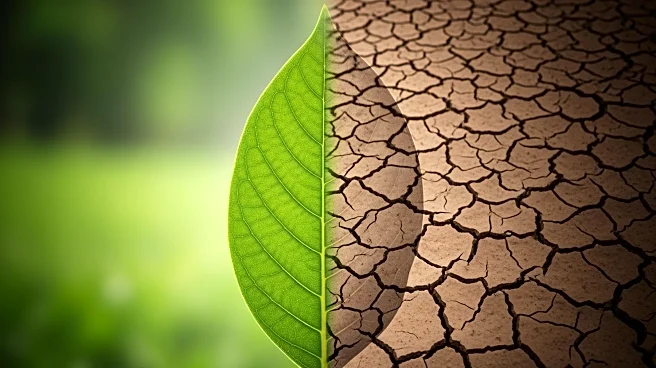What's Happening?
Recent research conducted by Lancaster University has highlighted significant changes in the composition of tree species in Brazilian forests due to human activities such as deforestation and forest degradation. The study, published in Nature Ecology
and Evolution, found that fast-growing, small-seeded tree species are becoming more dominant in areas with high human disturbance. This shift is replacing slow-growing, large-seeded trees, which are crucial for carbon storage and biodiversity. The research analyzed data from over 1,200 tropical tree species across more than 270 forest plots in the Brazilian Amazon and Atlantic forests. The findings indicate that heavily deforested areas are increasingly populated by opportunistic species with softer wood and smaller seeds, dispersed by small birds and bats. The study emphasizes the need for conservation and restoration efforts to preserve these vital ecosystems.
Why It's Important?
The shift in tree species composition has significant implications for the environment and biodiversity. Fast-growing, small-seeded trees, which are becoming more prevalent, have a reduced capacity to store carbon compared to the large-seeded, dense-wooded trees they are replacing. This change could undermine efforts to mitigate climate change, as tropical forests play a crucial role in absorbing greenhouse gases. Additionally, the loss of large-seeded trees affects wildlife species that rely on them for food and seed dispersal, potentially leading to further biodiversity loss. The study underscores the importance of supporting indigenous-led conservation initiatives to protect and restore these ecosystems, which are vital for maintaining global biodiversity and climate stability.
What's Next?
The study calls for increased conservation and restoration efforts to address the ongoing shifts in tree species composition. This includes tackling not only deforestation but also other forest disturbances such as selective logging and fires. Indigenous-led conservation initiatives are highlighted as crucial for preserving these ecosystems. The findings may prompt policymakers and environmental organizations to prioritize strategies that support biodiversity and carbon storage in tropical forests. Continued research and monitoring are essential to understand the long-term impacts of these changes and to develop effective conservation strategies.















